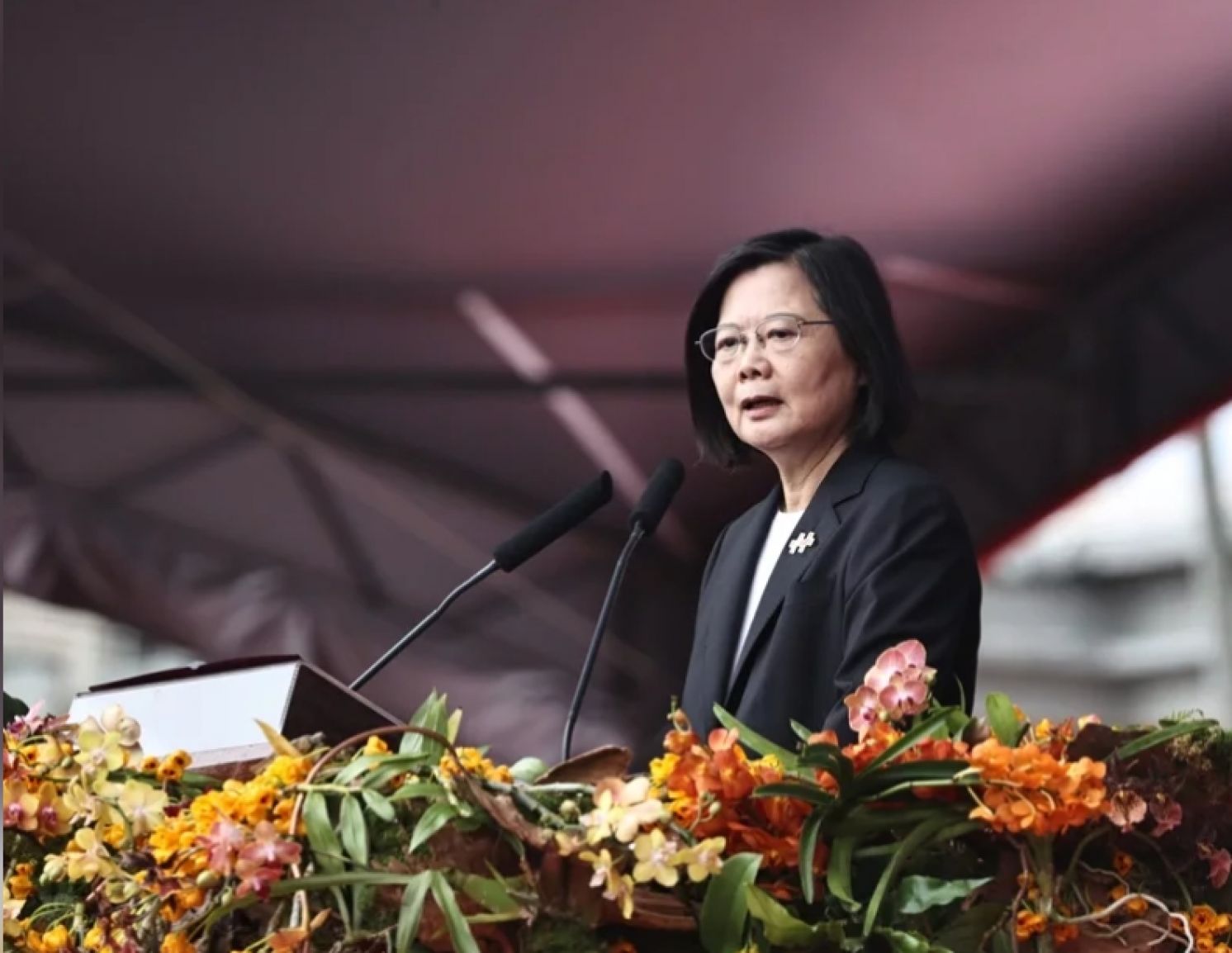
This Week in Taiwan 1008-1014
October 9: In April, mainland China launched trade barrier investigations against Taiwan due to expire on October 12 when results and subsequent measures would be announced. However, the mainland’s Ministry of Commerce announced that due to its complexity, the investigation will be extended for three months until January 12, 2024, the day before the presidential election in Taiwan. The Office of Trade Negotiations, Executive Yuan, criticized that China is attempting to interfere with Taiwan's elections with economic coercion.
October 10: President Tsai Ing-wen delivered the last National Day address of her tenure. On cross-strait relations, she reiterated the "Four Musts" and emphasized that peace is the only option for both sides. She emphasized that the "Republic of China Taiwan" has become the mainstream consensus of the 23 million people and hopes that greater consensus on Taiwan's internal affairs may be forged post-election. Based on Taiwan's public opinion, she hopes to develop a mutually acceptable basis of interaction with Beijing and a path to peaceful co-existence.
October 10: The International Monetary Fund (IMF) released the autumn report for the "World Economic Outlook," lowering Taiwan's annual economic growth forecast from 2.1 percent to 0.8 percent, a decrease of up to 1.3 percentage points; the growth rate for next year is estimated to be 3 percent. The National Development Council responded that weak global economic growth has suppressed Taiwan's export performance, but signs have emerged indicating that the economy has bottomed out, with exports expected to return to positive growth in the fourth quarter.
October 11: The Ministry of Finance (MOF) released trade statistics for September, with exports reaching US$38.81 billion, a near 11-month high and a turned positive year-on-year growth rate of 3.4 percent. The MOF described that export performance in the third quarter was "stable amid weakness" and is expected to "see through the clouds" and return to a growth trajectory in the fourth quarter. The MOF noted that China is Taiwan’s largest export destination but also the market which experienced the worst downturn this year.
October 12: The "fake spy" case that arose from self-proclaimed former Chinese spy Wang Liqiang’s claims, which had affected Taiwan's 2020 presidential election, has come to a conclusion. Xiang Xin, chairman of China Innovation Investment Limited, and his wife, both implicated in the case for violating the National Security Act, were ultimately not prosecuted. On money laundering, the two were acquitted by the Taiwan High Court last month and confirmed not guilty because the prosecutor did not appeal, ending 1,426 days of immigration control.
October 12: Vice Chairman Andrew Hsia of the Kuomintang (KMT) said that the KMT is definitely not a "pro-China" or "unification" party, a statement criticized by mainland China’s Taiwan Affairs Office. Hsia explained that his remarks were intended to remove "unnecessary and defamatory" labels and did not mean that the KMT had changed its position. The KMT has always promoted cross-strait relations based on the Republic of China Constitution and the principles of the "1992 Consensus," "One China with respective interpretations," "opposition to Taiwan independence," and "seeking common ground while shelving differences" under the KMT Charter.
October 13: Samsung Electronics and SK Hynix from South Korea have reportedly been granted an indefinite extension of chip export exemptions by the United States, making the market highly concerned about the Taiwan Semiconductor Manufacturing Company's (TSMC) situation. In a rare move, TSMC broke its silence before the institutional investor's meeting and confirmed that it had obtained an extension of exemptions and was applying for an indefinite exemption from the Bureau of Industry and Security of the United States Department of Commerce regarding its operations in China.
October 14: The KMT and Taiwan People's Party (TPP) negotiated for the first time on opposition cooperation. Both parties agreed to hold three public debates but remain undecided on how to select the strongest opposition presidential candidate. The TPP supports using public opinion polls to select the presidential candidate, while the KMT advocates holding an open democratic primary election.